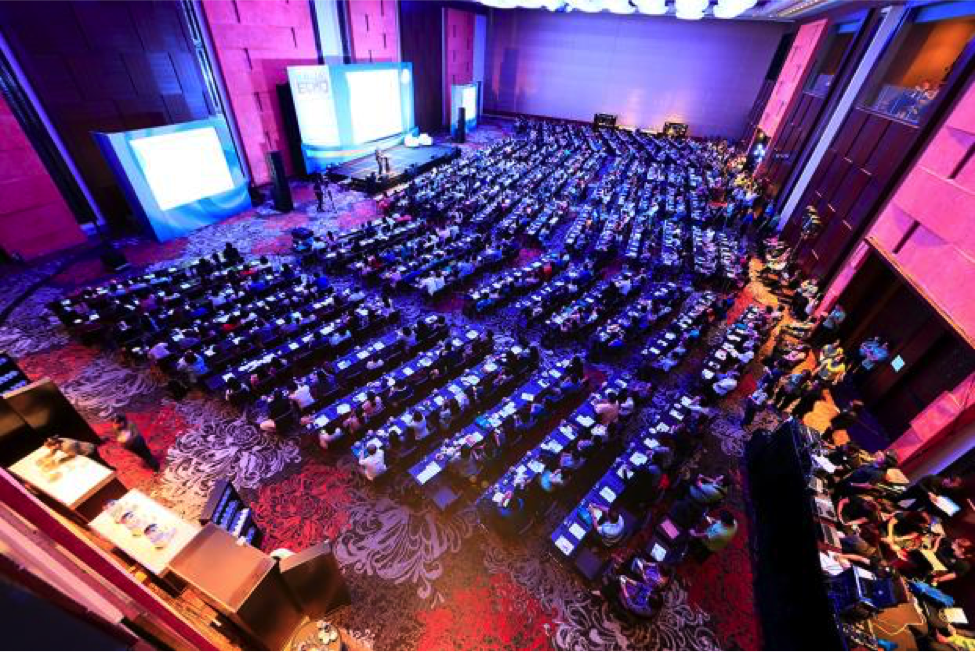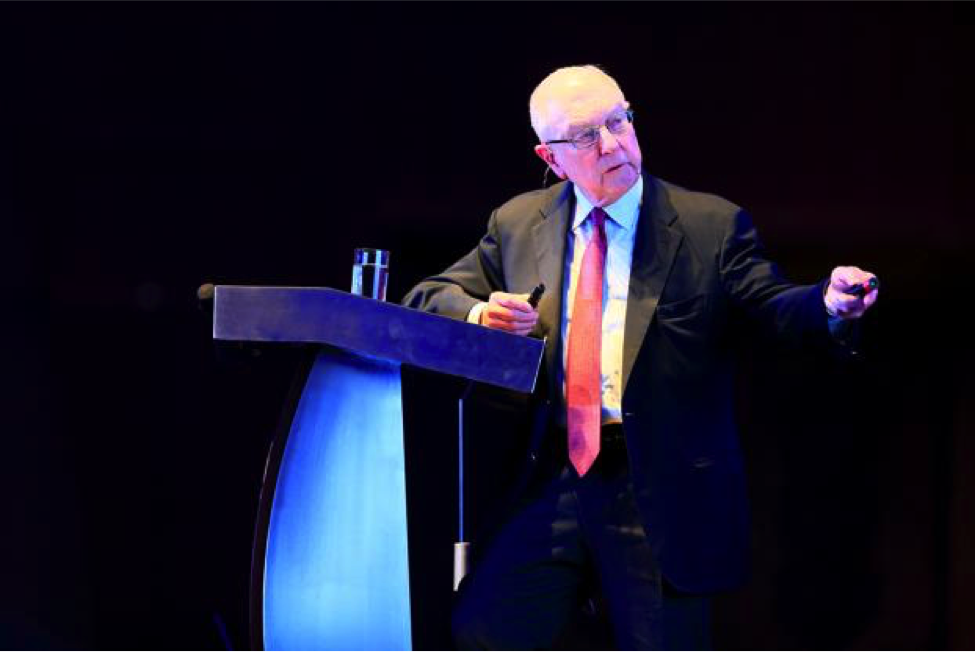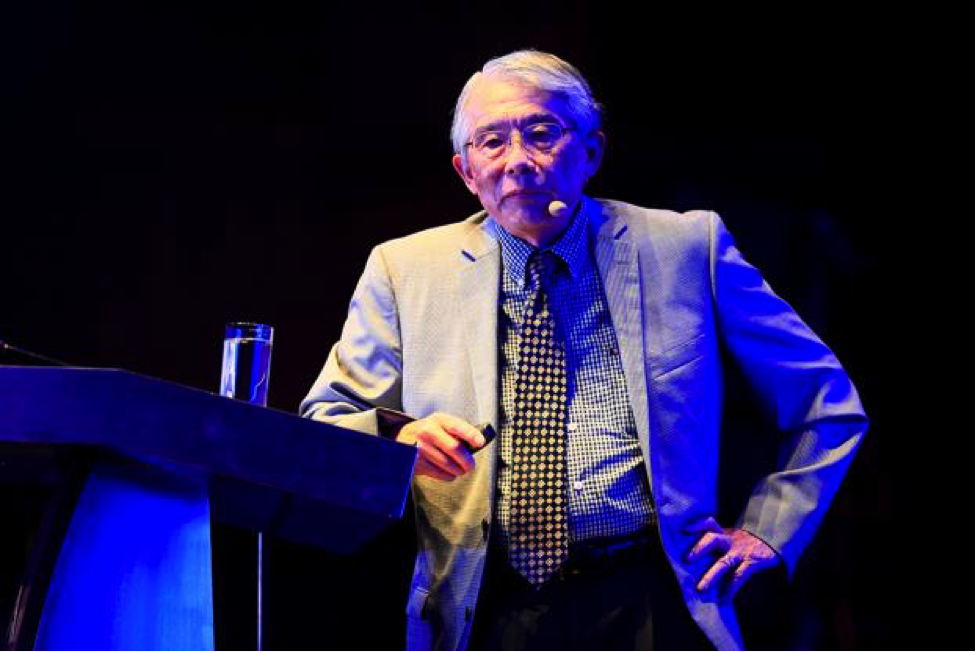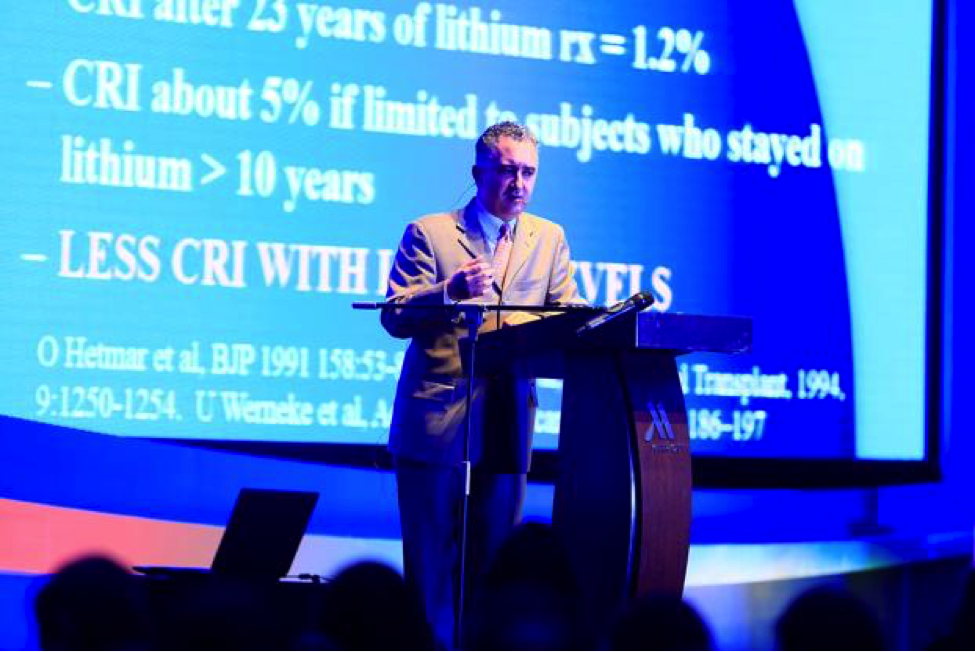Unilab holds 2nd Experts’ Convergence for Health Outcomes Summit

Over a thousand medical practitioners attended the second ECHO Summit held at the Marriott Hotel Grand Ballroom.
Echoing the value of continuous learning, Filipino medical experts were recently given another privilege to listen and interact with world-renowned thought leaders in the field of medicine.
Now on its second year, the Experts’ Convergence For Health Outcomes (ECHO) Summit saw more than a thousand Filipino physicians (mostly internists, family, industrial, and general medicine practitioners) learning about the latest in innovative medicine and cutting edge research, as four highly acclaimed experts shared their insights on heart failure, depression, diabetes and women’s health.
This year’s edition of the ECHO Summit – which was hosted last month at the Grand Ballroom of the Manila Marriott Hotel by the Specialty Cluster of United Laboratories Inc. (UNILAB), composed of LRI-Therapharma, Medichem and Biofemme – formed part of the company’s commitment to provide continuing medical education opportunities for the Filipino physician. By bringing together these four thought leaders in one event, UNILAB believes that it is able to better pursue excellence in the fields of science and medicine. “Filipino physicians have always kept abreast with current developments in the international world of science and medicine. To foster this thirst for knowledge, ECHO was conceptualized as a multidisciplinary gathering of international and local scientists, researchers, and physician leaders,” James Dio, Operating Vice President of UNILAB, said.
Annual event
ECHO was launched in 2015 to coincide with the 70th anniversary of UNILAB, with the clear intent to bring innovative medicine and cutting-edge research to local shores. World-renowned leaders, who are highly recommended and deemed desirable by Filipino specialists, are being invited to provide and deliver unbiased and evidence-based discourses on their fields of expertise.
“Summits like these are really welcome as it gives us doctors the latest and most innovative updates. As a doctor and an academician, I believe that it’s always best to have this kind of activities for the upliftment, continuous medical education, and continuing professional development of the doctors,” noted Philippine College of Occupational Medicine President Dr. Edmyr Macabulos. One of the more than one thousand attendees, Dr. Macabulos noted that the summit could not have come at a more opportune time, as both the government and the industry have been ramping up efforts to boost the quality and level of medical care in the country.
“Speaking in behalf of the organization that I currently head, I must say that the Philippine medical practice is in a very good position. As far as our association is concerned, we think that we can learn a lot from summits such as this one,” he claimed. “The ECHO summit is a welcome treat and a big help to doctors like us who are also busy with our practice. This kind of opportunity wherein we get first hand information from experts outside the Philippines helps substantiate the regular readings and research that we also do. Imagine, these are experts that are known worldwide and it is from them that we get to acquire new learnings and findings,” Dr. Macabulos said further.
“Everything that we’ve learned from these experts can always be applicable in the local setting. These are actually learnings that experts like myself can use as a starting point in making the workplace better for both the workers and the patients,” Dr. Macabulos explained. “Summits such as this one obviously play a crucial role in the overall improvement of medical practice in the country. It is the transfer of knowledge, and of expertise that truly made the ECHO Summit valuable. Thus it becomes a good basis for medical practice,” he added.
Knowledge transfer
The recently concluded summit saw four experts discussing topics that are all related to cardiovascular diseases, ranging from risk factors (menopause, anxiety and depression), diabetes, and heart failure, which is the end stage in the spectrum of cardiovascular conditions. There were three lecturers from the United States, namely, Dr. Bertram Pitt of the University of Michigan; Dr. Wilfred Fujimoto of the University of Washington; and Dr. Nassir Ghaemi of Tufts Medical Center, Boston. The fourth speaker was Dr. Amos Pines from the Tel-Aviv University in Israel.
Here is a snapshot of the important medical issues and concerns that each expert discussed during the summit.
Dr. Bertram Pitt
Known worldwide as a heart failure expert and the lead investigator in many pivotal clinical trials on the disease, Pitt presented a comprehensive overview of the clinical trial evidence which supports the use of mineralocortoid receptor (MRAs) such as Spironolactone and Eplerenone in the management of heart failure. The Professor Emeritus at the University of Michigan, who also has a long string of accolades under his sleeve, further discussed the development of new potassium lowering agents such as Patiromer and ZS9, which are new pharmaceutical agents designed to normalize high serum potassium levels which may develop in patients using MRAs and other drugs. Dr. Pitt also acquainted the audience with the developmental progress of a new delivery system that would allow the administration of furosemide through a subcutaneous route, allowing it to be delivered at home to reduce hospitalization costs for patients with acute decompensated heart failure.
Dr. Wilfred Fujimoto
A Professor Emeritus of Internal Medicine at the University of Washington, Dr. Wilfred Fujimoto led the team that conducted The Japanese American Community Diabetes Study in Seattle, Washington from 1983 to 2001. This research was an offshoot of the observation that US based Japanese had a higher prevalence of type 2 diabetes than those in Japan, despite no major difference in their dietary habits. The study attributed the disjointed prevalence to a difference in the physical activity levels of the two populations. Simple activities, such as walking to and from the train station, and using the stairs, helped to decrease the prevalence of type 2 diabetes.
Subsequent epidemiologic studies eventually generalized these findings to other Asian American populations including the Filipino communities. It is theorized that this higher incidence and risk for diabetes may be due to the propensity of Asian Americans to develop more visceral fat (fat deposits in the abdominal cavity) even if they are not obese. Dr. Fujimoto showed pictures comparing the significantly higher amount of visceral fat deposits in a non-obese Asian American when compared to that in an obese African American. He described the current theory that the Asian propensity to visceral fat deposition is due to a genetically weaker pancreatic beta cell which makes Asians more prone to insulin resistance and subsequent diabetes mellitus.
Dr. Nassir Ghaemi
A professor at the Department of Psychiatry at Tufts University School of Medicine, Dr. Ghaemi examined the relationship among depression, anxiety, and cardiovascular disease. He stated that depression and anxiety may be a consequence of the existence of the cardiovascular condition but also recognized that depression and anxiety may also cause the development of cardiovascular disease. Dr. Ghaemi also discussed the management of these conditions, which range from counselling to the use of drugs such as Selective Serotonin Reuptake Inhibitors (SSRIs) and Lithium. He likewise presented data regarding the impact of lithium, anticonvulsants and other agents on Dementia.
Dr. Amos Pines
A professor at the Sackler Faculty of Medicine in Tel-Aviv University, Dr. Amos discussed the current attitude towards the use of hormone replacement therapy in menopause. For women going through the hormonal changes of menopause, hormone replacement therapy may significantly reduce the severe symptoms associated with it, as well as, confer some protection against cardiovascular disease and osteoporosis. However, physicians should select the patients carefully and individualize treatment so that every woman can maximize the benefits of hormone therapy.
ADVT.



